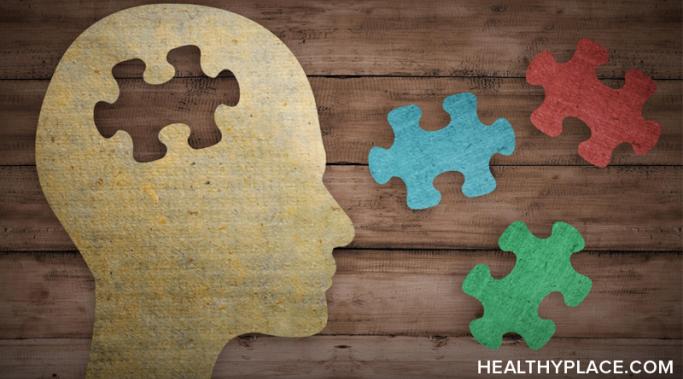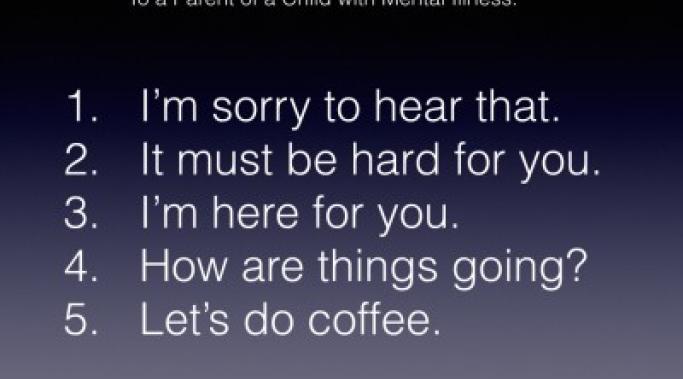Well-intentioned people often suggest that my child with mental illness isn’t actually mentally ill. They insist he has an underlying medical condition. Lately, it's pediatric autoimmune neuropsychiatric disorders associated with streptococcal infections (PANDAS). To those who interject these suggestions without invitation into a conversation about mental illness, know it can be more harmful than you think.
Note: I am not an "expert", nor am I writing this in a professional capacity. I am a parent on my own journey, which is where this blog comes from.
Stigma Mental Illness
Controversy surrounds a parent's decision to give psychiatric medication to their child with disruptive mood dysregulation disorder (DMDD)--or any other mental illness. Few question parents who medicate children with diabetes or other potentially life-threatening conditions. Yet they will absolutely question those of us whose children have potentially life-threatening mental illnesses. Parents don't take this decision lightly, though, and we know psychiatric medication for a child is not an easy fix.
There is a stigma against parents who raise a child with mental illness. I felt this stigma against parents myself as I sat in my first National Alliance on Mental Illness (NAMI) meeting, horror slowly crept up my body like a spider crawling across my skin. The organization provides education and support for both people suffering from mental illness and their families. I was attending a meeting for families but as I listened to one story after another, I was sure I didn't belong (Stigma of Being Branded Bad Parents). But this was the stigma against parents who raise a child with mental illness rearing its ugly head.
While mental health screenings in school may take place, they need to be more inclusive. Although autism spectrum disorder (ASD) and childhood mental illnesses like attention deficit/hyperactivity disorder (ADHD) can look similar on the outside, the way they're treated in schools looks different. From the perspective of a parent of a child with mental illness, they seem like unfairly disparate worlds. It makes me think of the need for inclusivity in school mental health screenings.
May is Mental Health Awareness Month, and one of the least discussed mental health topics is childhood mental illness. Twelve million children in our country have a mental illness, yet fewer than one in five get treatment (Childhood Psychiatric Disorders). So not only parents suffer from our cultural silence. Our children with mental illness suffer, too.
This is a story of accepting my child's mental illness and moving through the stages of grief. I want this story to serve an emotional purpose. For others parenting a child with mental illness, I hope it normalizes your experience. For people who haven't been through this but want to support a parent, I hope it makes those feelings real for you. Mental illness in children is gut-wrenching to watch. As a parent, the grief can be crippling, and because others don't always understand, the grief can be lonely. We need understanding when parenting a child with a mental illness if we're going to push through the stages of grief towards the hope on the other side.
Have you ever wondered what to say to a parent of a child with mental illness? As a parent of a 17-year-old with bipolar disorder and social anxiety, I have. In this blog I will offer ideas of what to say to a parent of a child with mental illness.
Have you ever wondered what not to say to a parent of a child with mental illness? Every day I hear insensitive remarks about my child's mental illness. I don't believe the people making these comments know how hurtful they are to me. It recently occurred to me that most people probably don't know what to say or what not to say to a parent of a child with mental illness. Perhaps that is why they say exactly the wrong thing. So I've put together some guidelines of what not to say to a parent of a child with mental illness.
The decision to medicate your child for a mental illness is often an agonizing one. Many parents that I work with struggle to find the balance between dealing with their child's behaviors themselves and letting someone help them. Medicating a child is not the easiest decision to make for some parents while for others it is the easiest thing to do.
As a parent who does choose to medicate my child, I have to say that medication in and of itself, does not resolve behavior issues. Yes, medication does help, but I believe it to be a last resort option. Below are descriptions of some of the parents I've worked with. So would you choose to medicate or not to medicate your child for a mental illness?
Hiya Parents! As 2013 ends, I've been thinking about the past year and the different ways Bob, my son with ADHD, has grown. I've also been reviewing the past year for the top ten posts that you've enjoyed. As I went through them, I realized that I've grown a lot as a parent. So much of our time is spent ensuring that our kids are growing up well that we forget that we grow, too. So here's a round-up of my top ten posts just to inspire you to have an amazing 2014 with your special needs child! Thank you so much for making it a great 2013. Happy New Year!








